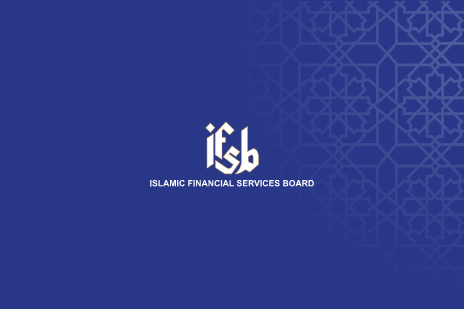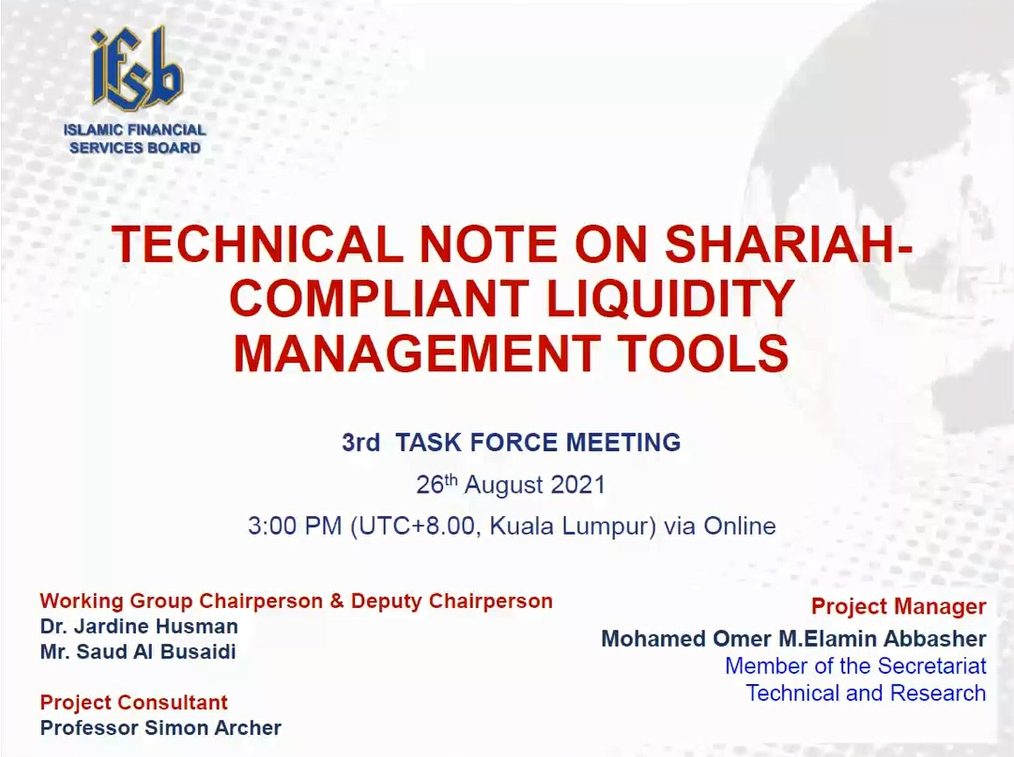
IFSB-FIS Workshop Series (Sudan)
The Corinthia Hotel Khartoum, Sudan Khartoum, SudanThis 4-day workshop is tailored for the regulatory and supervisory authorities and the market players for the banking sector within Sudan. The major focus of the workshop will be on the most recent Guiding Principles which address the new global regulatory requirements for the supervisory review process and for liquidity management. The workshop will discuss the following IFSB Standards: IFSB-16: Revised Guidance on Key Elements In The Supervisory Review Process of IIFS GN-6: Guidance Note on Quantitative Measures for Liquidity Risk Management in IIFS Overall, this Workshop aims to: Enhance the participants’ understanding of the respective Standards and Guiding Principles thereby facilitating the implementation of these standards in their respective jurisdictions; Assist the participants in the practical application of issues addressed in the particular standards through case studies, hands-on exercises and other interactive tools; and Promote the sharing of experiences among the participants on the implementation of respective IFSB Standards and Guiding Principles. This Workshop is hosted by Central Bank of Sudan and participation in this Workshop is by INVITATION only. For queries, please contact the IFSB Secretariat, Mr. Hamizi Hamzah at [email protected]. Programme - Event Session(s) Date Time Topics Day 1 11/01/2016 09:00 - 09:30 Registration 09:30 - 09:45 Opening Session by the IFSB and the CBOS Representatives 09:45 - 11:00 Session 1: IFSB-16: Revised Guidance on Key Elements In The Supervisory Review Process (SRP) Introduction to IFSB-16 Necessary Preconditions for Effective Supervision Additional Considerations in the Issuance of an IIFS License Supervisory Approaches in the Supervision of IIFS 11:00 - 11:30 Group Photo and Coffee Break 11:30 - 13:00 Session 2: IFSB-16: Revised Guidance on Key Elements In The SRP - Continued Regulatory Capital Requirements Guidance on the Slotting Method Treatment of IAH and Displaced Commercial Risk Advanced Approaches and Supervisory Discretion 13:00 - 14:00 Lunch and Prayer 14:00 - 16:00 Session 3: IFSB-16: Revised Guidance on Key Elements In The SRP - Continued Internal Capital Adequacy Assessment Process (ICAAP) ICAAP Framework for IIFS Supervisory Review Process in ICAAP Case Study 16:00 - 16:30 Coffee Break Day 2 12/01/2016 09:00 - 09:30 Registration 09:30 - 11:00 Session 4: IFSB-16: Revised Guidance on Key Elements In The SRP - Continued Corporate Governance Sharī`ah Governance Risk Management Processes Enterprise-wide Risk Management Framework 11:00 - 11:30 Coffee Break 11:30 - 13:00 Session 5: IFSB 16: Revised Guidance on Key Elements In The SRP - Continued Related Party Transactions Secrutisation Risk and Related Off-balance Sheet Exposures Special Purpose Entities (SPEs) and Key Considerations in the Supervisory Review Process Case Study 13:00 - 14:00 Lunch and Prayer 14:00 - 16:00 Session 6: IFSB 16: Revised Guidance on Key Elements In The SRP - Continued Transparency and Market Discipline Consolidated and Home-host Supervision Supervisory College and IIFS Specific Issues Case Study 16:00 - 16:30 Coffee Break Day 3 13/01/2016 09:00 - 09:30 Registration 09:30 - 11:00 Session 7: IFSB 16: Revised Guidance on Key Elements In The SRP - Continued Supervisory Review for Credit Concentration Risk Concentration Limits for Real Estate Investment Islamic Windows Operations Case Study 11:00 - 11:30 Coffee Break 11:30 - 13:00 Session 8: IFSB-16: Revised Guidance on Key Elements In The SRP - Continued Liquidity Risk Management and Supervision Sound Stress Testing Practices Sharī`ah-compliant Hedging Techniques Supervisory Transparency and Accountability 13:00 - 14:00 Lunch and Prayer 14:00 - 16:00 Session 9: GN-6: Guidance Note on Quantitative Measures for Liquidity Risk Management Application of the Liquidity Coverage Ratio (LCR) in IIFS Definition and Categorisation of High Quality Liquid Assets (HQLA) Operational Considerations for HQLA Infrastructure Issues in the Availability of Sharī`ah-compliant HQLA 16:00 - 16:30 Coffee Break Day 4 14/01/2016 09:00 - 09:30 Registration 09:30 - 11:00 Session 10: GN-6: Guidance Note on Quantitative Measures for Liquidity Risk Management - Continued Components of Total Net Cash Outflows Categories of Cash Outflow Cash Inflows Case Study 11:30 - 11:30 Coffee Break 11:30 - 13:00 Session 11: GN-6: Guidance Note on Quantitative Measures for Liquidity Risk Management - Continued Net Stable Funding Ratio (NSFR) Application of the NSFR in IIFS The Internal Liquidity Adequacy Assessment and Supervisory Liquidity Review Processes Application of LCR and NSFR 13:00 - 14:00 Lunch and Prayer 14:00 - 16:00 Session 12: GN-6: Guidance Note on Quantitative Measures for Liquidity Risk Management - Continued Principles for Applying Alternative Liquidity Approaches Disclosure Requirements for LCR and NSFR Evaluation of the Market Liquidity of Assets Case Study 16:00 - 16:15 Closing & Certificate Giving Ceremony 16:15 - 16:45 Coffee Break Downloadable Document(s) 1.) Event Session(s) - PDF Format
